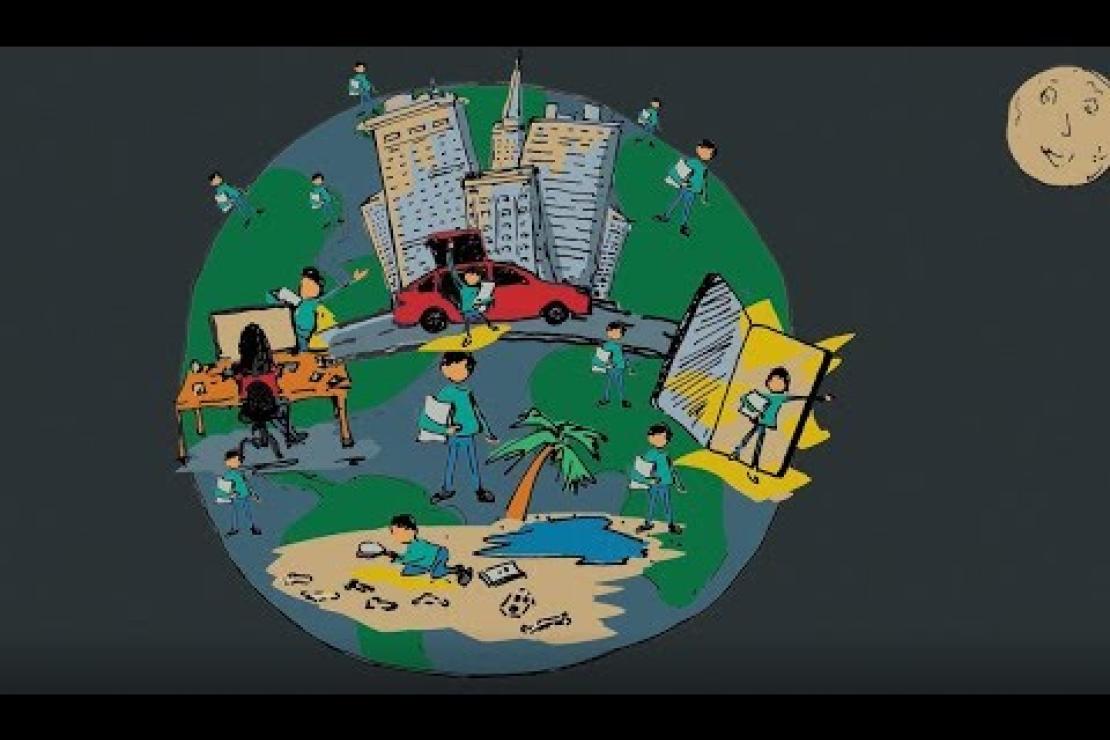Anthropology
Welcome to the Pierce College Department of Anthropology
The Department offers courses in all four fields of Anthropology, preparing students for transfer as a major in any of the four subfields: Archaeology, Biological Anthropology, Cultural Anthropology, and Linguistic Anthropology. Our courses also helps students meet their transfer requirements in General Education by offering courses in the GE Areas of Arts and Humanities, the Social Sciences, and the Physical and Biological Sciences

What's going on in the department?
Journal of Anthropological & Geographical Sciences
Each spring semester this journal is an opportunity for students to have their work published. Check out our archive! If you are interested in contributing to this upcoming year's journal, please contact Professor Kia Atsales at atsalekc@laccd.edu
Journal of the Anthropological and Geographical SciencesExplore the Four Fields of Anthropology

Archaeology
Archaeology is the study of human history through the discovery and analysis of human material remains. Archaeologists do much more than "dig." Archaeologists in federal, tribal, and state government agencies are responsible for managing, protecting, and interpreting archaeological sites on public land. Some work in museums, archaeological parks, or historic sites. Archaeologists may also manage collections of artifacts, work in education or public programming.

Biological Anthropology
Biological anthropology is a social science that studies the evolution, variation, and adaptations of humans and related primates. Biological anthropologists may serve in such programs as education officers and coordinators, or find positions in exhibit development, collection management, publications, and museum administration.

Cultural Anthropoloy
Cultural anthropology is the study of human culture, beliefs, practices, and how people organize their societies. Cultural anthropologists conduct in-depth fieldwork, living among the people they study and learning their languages. They use this knowledge to compare human societies and explore cultural diversity.

Linguistic Anthropology
Linguistic anthropologists study language in the context of culture, both past and present. They investigate how language is used to create, maintain, and contest social relations and cultural forms. They also explore how language can provide insight into the evolution of culture and society. Linguistic anthropologists work in community colleges, liberal arts colleges, and research universities, they also work in industry or government, researching social media and information technologies, policymaking for bilingual language education, or even inventing new languages, such as Klingon from Star Trek.
Careers in Anthropology
In the community of anthropologists in the United States, these four fields—human biology, archaeology, cultural anthropology, and linguistics—are understood to be the pillars on which the whole discipline rests. Any individual anthropologist will probably specialize in one or two of these areas but have general familiarity with them all. The video below highlights a few anthropologists who have done very different kinds of things with their anthropological knowledge and approach. We highlight the diverse fields of technology innovation, urban planning, historic preservation, communications strategy, and forensic investigation to illustrate how, whatever people are doing, it’s all anthropology.
Kia Atsales, M.A.
Advisor: Applied AnthroAdvisor
Advisor: Anthropology Journal
atsalekc@laccd.edu
Dr. Ronald Faulseit
Chair of the Department
Advisor: Archaeology
faulserk@laccd.edu
Dr. Erin Hayes
Advisor: Cultural/Linguistic Anthro
Honors Program Director
hayesej@laccd.edu
Dr. Brian Pierson
Advisor: Biological/Forensic Anthropology
Advisor: Forensic Anthropology
piersobe@laccd.edu
Dr. Vincent Whipple
Advisor: American Indian Studies (AIS)
whipplvh@laccd.edu











